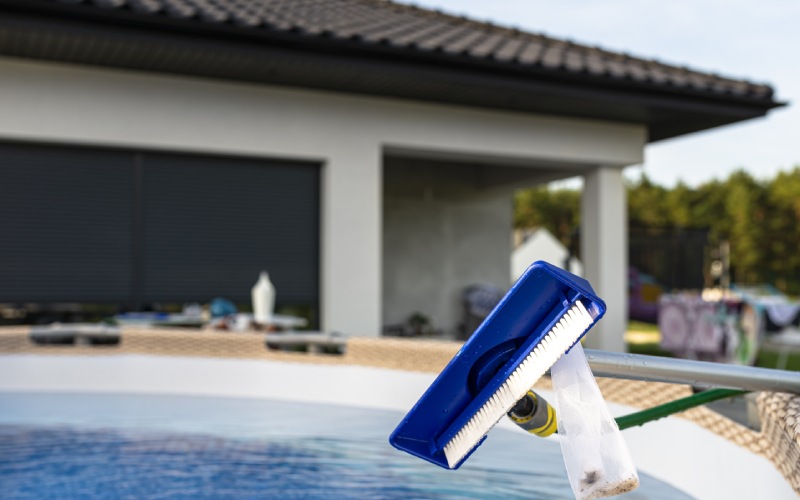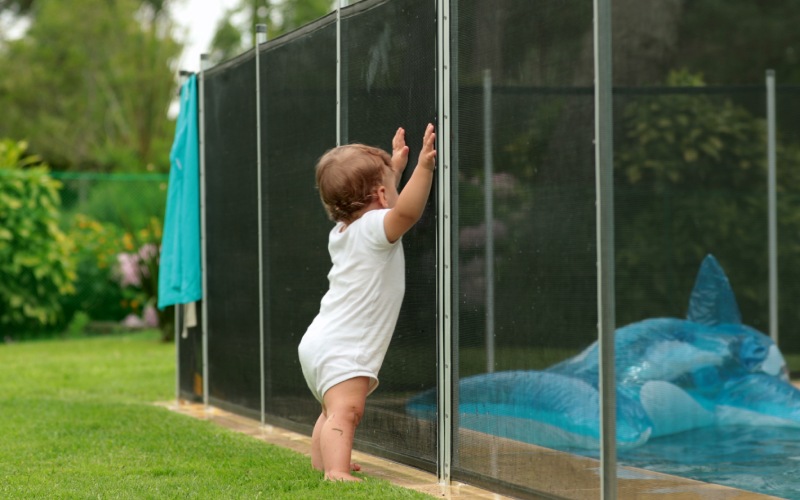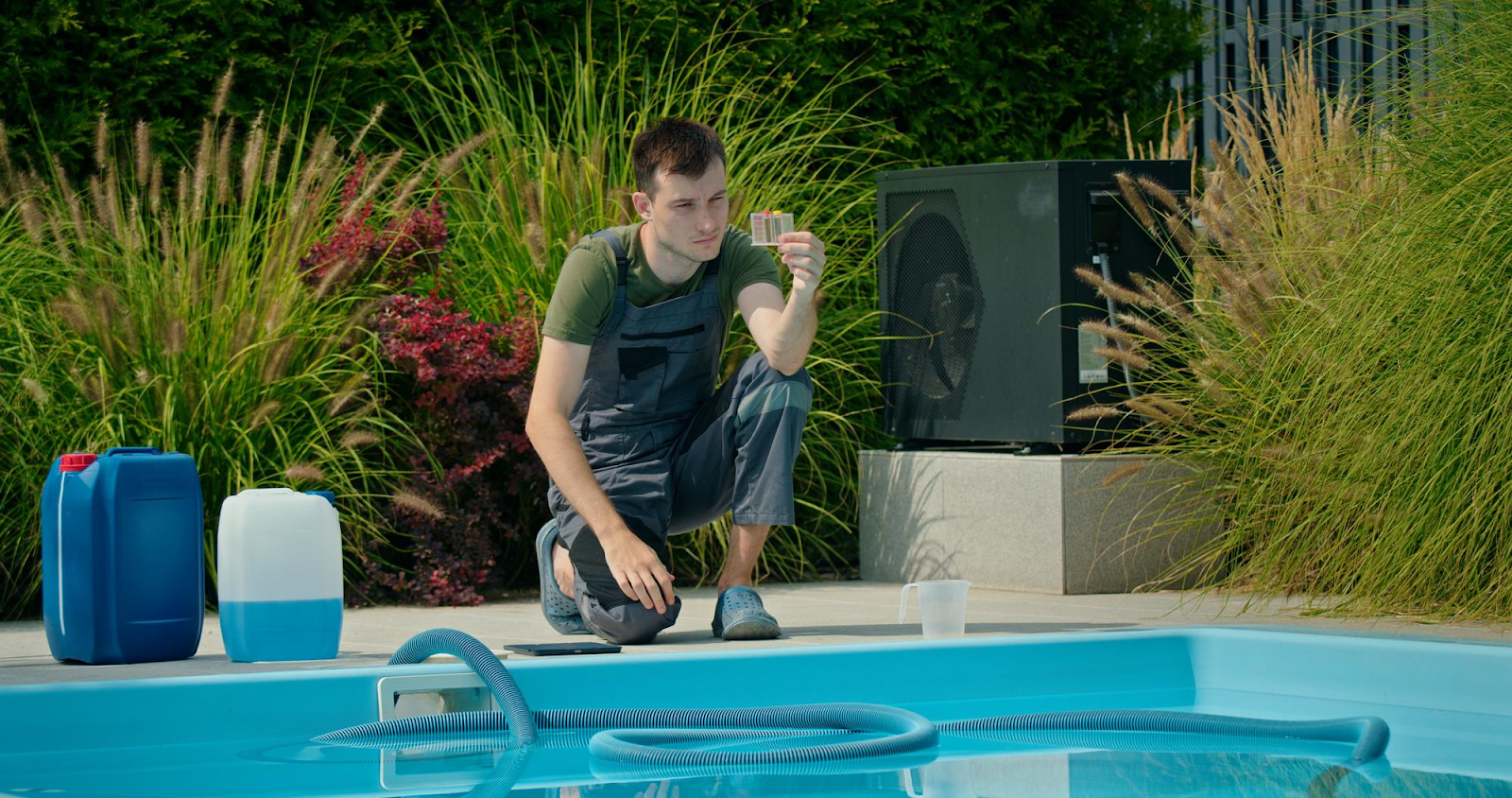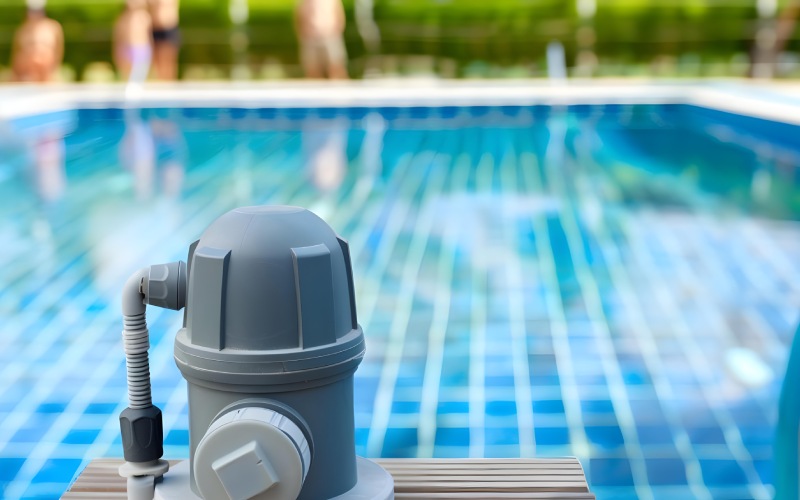

Fiberglass pools have gained popularity due to their durability, ease of maintenance, and aesthetic appeal. They are also very safe, but as with any pool, it’s important to be aware of all of the safety precautions. Some customers worry about the fibreglass material in these pools; however, fiberglass pools are considered safe for swimmers for several reasons: A fiberglass pool comprises several layers. The outermost layer, known as the gelcoat, acts as a protective barrier against water and chemicals. Beneath this, the fiberglass laminate layer consists of fiberglass strands saturated with resin for reinforcement. Optionally, a core material like foam may be included for added strength and insulation. The innermost layer is the resin layer, which bonds the fiberglass to the core material and ensures structural integrity. This means the fiberglass material is well encapsulated within layers of resin and covered with the gelcoat. This encapsulation prevents the release of fiberglass fibres. For fiberglass fibres to become loose, the pool would need to be heavily scratched and severely damaged, penetrating through the gelcoat and into the fiberglass layer; this damage would be highly noticeable. Any pool damaged to this level should be avoided until it’s repaired or replaced. A quality pool from a reputable manufacturer is designed to be safe and prevent these risks. Fiberglass pools have a smooth surface that is easy to clean and maintain. This smooth surface prevents fiberglass fibres from becoming loose or exposed. It also helps prevent cuts and abrasions while swimming compared to rougher surfaces. Damage to the smooth gelcoat, such as cracking, chipping, or fading, can occur due to impacts or scratching. Avoid using metal-bristled brushes or sharp tools that could scratch or degrade this surface. Fiberglass is resistant to chemical corrosion, which means it won't degrade or release harmful substances when exposed to pool water and pool chemicals. However, there are some chemicals that, if used improperly or in excessive amounts, could potentially damage fiberglass pools, such as very strong acids. Only use recommended pool chemicals, and always according to manufacturer’s recommendations and the advice of professionals. Fiberglass itself is inert, meaning it does not react chemically with its surroundings. This inert nature contributes to its stability and safety in swimming pool applications. Fiberglass pools are less susceptible to algae because of their non-porous surface. However, it's still essential to maintain proper water chemistry and filtration to prevent algae growth. There are some issues that can occur with fibreglass pools, but these issues can be avoided with good installation practices and ongoing maintenance and care. Be sure to hire only reputable and experienced professionals for installation to ensure proper positioning and structural integrity, and ensure the pool is fabricated by a quality manufacturer. Good pools, properly installed, provide years of worry-free, safe service. Fiberglass pools are constructed with multiple layers of fibreglass material bonded together. Delamination occurs when these layers separate, which can lead to bulging, warping, or collapse of the pool shell. Delamination commonly results from manufacturing defects, impact damage, water intrusion, harsh chemical exposure, freeze-thaw cycles, and poor installation. Beyond a professional installation of a quality pool, prevention involves proper maintenance, addressing damage promptly, and following proper water chemistry guidelines. Manufacturing defects can leave uneven or rough surfaces on the fiberglass pool shell, which may result in cuts or abrasions to swimmers if not addressed. Fiberglass pools are subject to stress from factors such as ground movement, temperature fluctuations such as significant freeze-thaw cycles, or improper installation. Stress cracks may develop in response to these pressures, compromising the structural integrity of the pool and increasing the risk of leaks or collapse. Fiberglass pools are designed to withstand hydrostatic pressure from groundwater. However, poor installation, draining the pool completely, or an improper water balance can lead to buoyancy issues, causing the pool shell to lift or shift. Buoyancy problems can damage surrounding structures and compromise the pool's structural stability. As with any pool, there are some basic safety precautions. People for Pools prioritizes your safety. With regular maintenance and inspections, we catch problems early, preventing them from escalating. Our friendly service technicians are dedicated to addressing safety concerns, while providing valuable pool care education, so you can be informed and confident.Fiberglass Safety Features
Encapsulation
Smooth Surface

Chemical Resistance
Inert Nature
Algae-Resistant
Fiberglass Pool Considerations
Delamination
Manufacturing Irregularities
Stress Cracks
Buoyancy Issues

General Pool Safety




While we strive to provide as much useful information and tips as possible in our blogs, you may still have questions about your pool. That's okay! That's what we're here for. Give our team a call to discuss any questions you may have or the services you're interested in. Not only can we thoroughly answer your questions and concerns, but we can also help you regularly maintain your pool.
Give us a call, email us, or fill out and submit a form below and we'll respond promptly. We proudly service the Greater Toronto Area and can provide you with a free quote.

PEOPLE for POOLS is a professional pool company that can take care of your pool this season. Call us today to inquire about our pool maintenance service. Potential customers can receive a free quote for our services.